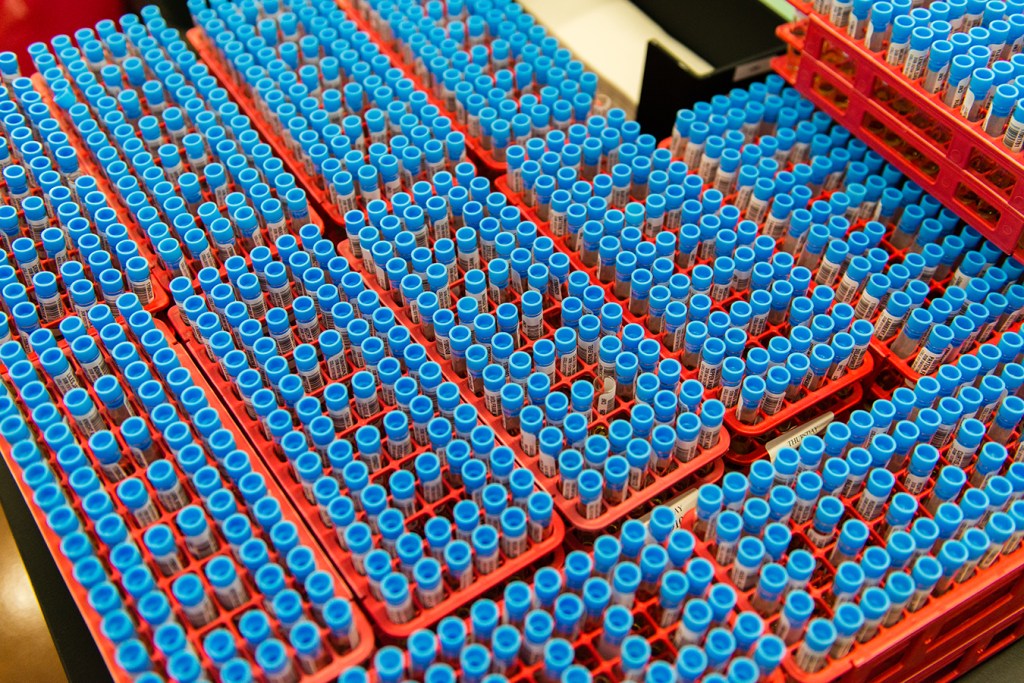A Tennessee-based chain of pain clinics that abruptly shut down last summer faces five whistleblower lawsuits accusing it of defrauding Medicare and other health insurers by billing for hundreds of unnecessary urine drug tests and other dubious health services, newly unsealed court records show.
The federal suits target Tennessee-based Comprehensive Pain Specialists, also known as Anesthesia Services Associates, PLLC, and several of its physician owners. At its peak, CPS ran 60 pain clinics in 12 states, according to the suits, as well as a lucrative urine-testing lab in Brentwood, Tenn. CPS closed with no warning in July, leaving patients in several states distressed and scrambling to find a new source of narcotic pain medicines.
In federal court filings unsealed in Nashville this week, federal prosecutors said they would take over the urine-testing allegations and sue several CPS owners, including co-founding anesthesiologists Peter Kroll and Steven Dickerson. Dickerson is a Republican state senator representing Nashville.
Kroll could not be reached for comment Wednesday. Dickerson did not respond to an email or a phone message left at his legislative office.
It is not clear whether the whistleblowers, who include former CPS doctors and other employees, would pursue several allegations against the company that the federal government declined to join in. CPS, in an unrelated court filing in December, said the company had terminated all of its employees and that debts “greatly exceed its assets.”
Once among the largest pain management groups in the Southeast, CPS crumbled amid financial woes that included nearly a dozen civil suits alleging unpaid debts, and a criminal investigation that ensnared its former chief executive, John Davis. Davis, 41, was convicted this month in federal court in Nashville on health care fraud charges. He is to be sentenced later this year.
CPS was the subject of a November 2017 investigation by Kaiser Health News that scrutinized its Medicare billings for urine drug tests. Medicare paid the company at least $11 million for urine screenings and related tests in 2014, when five of CPS’ medical professionals stood among the nation’s top such Medicare billers. One nurse practitioner working at a CPS clinic in Cleveland, Tenn., generated $1.1 million in urine-test billings that year, according to Medicare records analyzed by KHN.
Kroll, who also served as CPS’ medical director, said at the time that the tests were justified for patient safety and to reduce chances the pills might be sold on the black market. Kroll billed Medicare $1.8 million for urine tests in 2015, the KHN analysis of Medicare billing records found.
Kroll in an interview with KHN at the time said that he and fellow anesthesiologist Dickerson came up with the idea for the pain clinics over a cup of coffee at a Nashville Starbucks in 2005.
One of the whistleblower suits alleging unnecessary urine tests was first filed under seal in 2016 by Suzanne Alt, a doctor who worked in the company’s pain clinics in Troy, Mo., and Keokuk, Iowa, from May 2014 to March 2015. She alleged CPS doctors were “strongly encouraged to order full-panel urine drug screens on each patient, every time, despite the patient’s history, compliance and risk.”
She also said that the company’s electronic medical records “made it extremely difficult to order anything less than the full panel.” Alt said she was told the Tennessee lab did about 600 of these screens daily. Another whistleblower said he toured the lab with CPS executives and observed an “overpowering and unpleasant smell of urine.” In response, a CPS executive said, “To me, it smells like money,” according to the suit.
“They were making a killing,” said Birmingham, Ala., attorney Don McKenna, who represents Alt in the case.
Another of the whistleblowers, former CPS anesthesiologist Cynthia Niendorff, alleged that the company billed Medicare about $754 for each additional urine test, even though earlier results had come back negative. She said CPS grossed approximately $6 million per month from the urine-testing lab and said about 20% of this amount was suspect, according to the suit.
Mary Butner, a former insurance specialist for CPS in Gallatin, Tenn., alleged that CPS charged some patients $1,500 for a drug test to measure blood levels of medication and $400 for a drug test designed to detect illegal drugs — charges that the suit called “grossly inflated and disproportional to the actual costs.” She also alleged that CPS would fill prescriptions for patients whose drug tests detected the presence of illegal drugs, or showed that they were not taking their medication as directed.
Butner also accused medical director Kroll of approving prescriptions for back braces when it was “clearly medically unnecessary,” including some people who had injuries to a knee or elbow.







